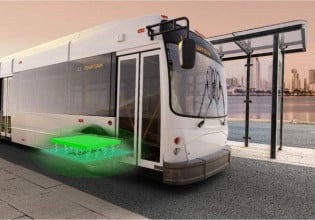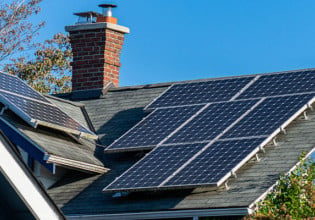Delta Developing Residential Battery Energy Storage Solution to launch in 2015
Delta Electronics, Inc. announced the launch of a new Battery Energy Storage Solution (BESS), at a press conference in Paris. This innovative energy-saving solution is complementary with renewable energy production systems in smart grids, and helps managing energy demand to ultimately reduce or defer the overall costs of grid investment and power dispatch. The BESS system is a home energy system consisting of a complete Delta composition, including rectifier, charger, micro-inverter, Li-ion battery, controller, sensor module and an energy management system, which can be remotely-controlled via mobile device. The Delta BESS system will be available on market in 2015.
Delta developed this innovative energy storage system designed for smart grid applications to optimize home energy balance. The system serves as an 'energy reservoir' for electricity generated from the photovoltaic (PV) module. The electricity which is stored in the batteries in the system can either be used by the household when there is no sunlight, or be fed into the grid when there is surplus energy.
Jackie Chang, president and general manager of Delta EMEA, said "thanks to Delta's Battery Energy Storage Solution, the system showed a significant reduction of grid power purchase. This new flexible and modular system helps managing energy in a grid including intermittent energy sources, such as solar energy. With this new solution, Delta contributes to smarter and greener energy management.â€
The Delta energy storage and management system is designed to be modular and flexible in configuration. It can optimize energy consumption and power dispatch according to customer profiles. Significant benefits expected to result from the Delta energy storage system include Reducing gird peak power demand; Increasing the utilization of renewable energy, such as the existing rooftop PV installation; and Reducing electricity bills by load shift and avoiding high electricity tariffs.






